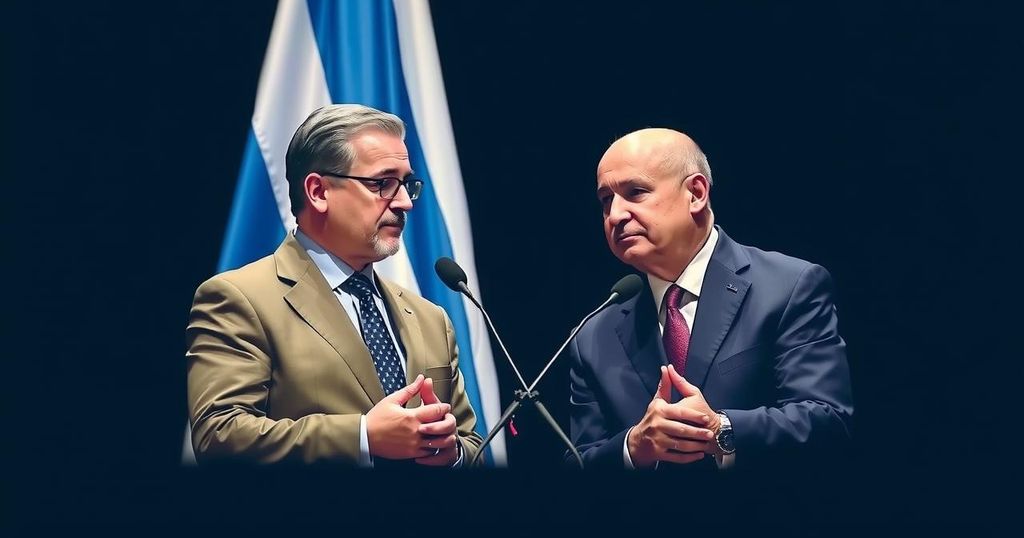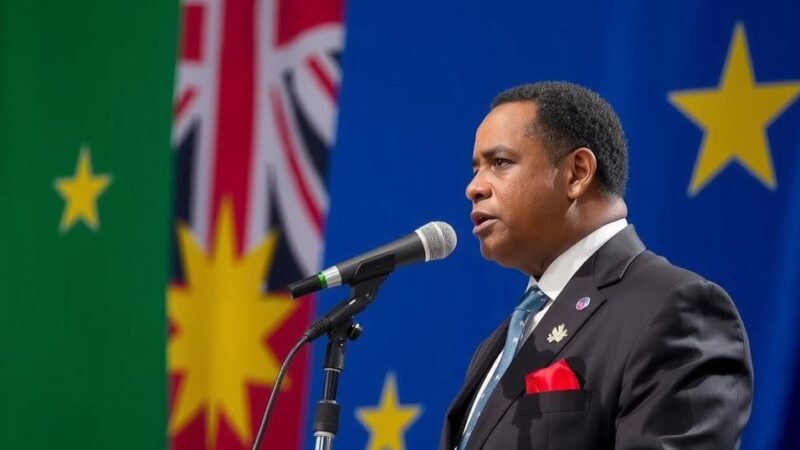Argentine President Javier Milei dismissed Foreign Affairs Minister Diana Mondino after her vote to lift the U.S. embargo against Cuba at the U.N. The change underscores Milei’s pro-U.S. stance and he appointed Gerardo Werthein as her successor. The U.N. resolution calling for an end to the embargo was widely supported, except by the U.S. and Israel, aligning with Milei’s goal of distancing Argentina from leftist regimes.
In a significant political move, Argentine President Javier Milei dismissed Foreign Affairs Minister Diana Mondino following her affirmative vote in favor of lifting the U.S. embargo against Cuba during a United Nations session earlier this week. Since assuming office in late 2023, President Milei, a staunch libertarian and proponent of U.S. alignment, has prioritized distancing Argentina from leftist regimes such as Cuba and Venezuela. On the same day as Mondino’s vote, the United Nations General Assembly overwhelmingly passed a non-binding resolution urging the United States to terminate its longstanding sanctions against Cuba, a motion opposed solely by the U.S. and Israel. President Milei has expressed his intention for Argentina to align its foreign policy closely with that of the United States and Israel. He amplified this sentiment by sharing a supportive message on social media from a legislator commending his administration for its stance against perceived dictatorship. In the aftermath of the vote, Gerardo Werthein, who previously served as Argentina’s ambassador to the United States, was selected to succeed Mondino as the new foreign minister, as confirmed by presidential spokesperson Manuel Adorni via X. Mondino, one of the initial appointees in Milei’s cabinet, was instrumental in maintaining diplomatic relations despite President Milei’s controversial remarks regarding nations such as Brazil and China. The situation escalated further when reports indicated that President Milei was in a meeting during which he received a call from Werthein regarding Argentina’s vote concerning the embargo against Cuba—a development that reportedly infuriated the right-leaning President. Earlier this year, Argentina’s state-owned energy firm YPF had declared that it would cease fuel provision to the Cuban airline Cubana, which led to the cessation of a long-standing route between Buenos Aires and Havana. The Cuban foreign ministry noted that Argentine officials attributed this decision to the U.S. embargo.
The dismissal of Minister Diana Mondino highlights the geopolitical divide that has emerged in Latin America, particularly between right-leaning governments favoring U.S. relations and leftist governments that advocate for closer ties with nations like Cuba and Venezuela. President Javier Milei’s administration has signaled a clear intention to align Argentina more closely with the policies of the United States and its allies, particularly in light of the recent United Nations call for an end to the embargo against Cuba. The historical context of U.S. sanctions against Cuba and their implications for regional trade and diplomacy are also key in understanding this political shift.
President Javier Milei’s replacement of Foreign Affairs Minister Diana Mondino underlines his commitment to a foreign policy that rejects cooperation with countries perceived as authoritarian, particularly in the context of U.S. relations. The decision reflects a broader trend among right-wing leaders in Latin America to distance themselves from leftist ideologies and aligns Argentina’s diplomatic posture more closely with that of the United States and Israel. The firing not only reinforces the administration’s stance on Cuba but also sets a clear precedent for future foreign policy considerations under Milei’s government.
Original Source: www.hindustantimes.com






